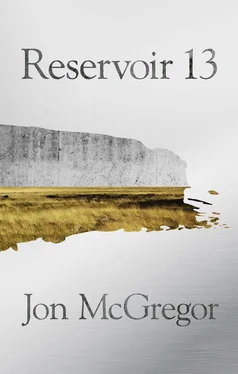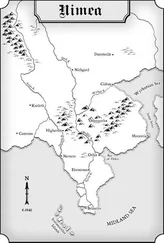Cathy knocked on Mr Wilson’s door and it took him a long time to answer. This had been happening more often. She could hear Nelson barking, thumping against the door, and she had a sudden glimpse of it one day happening like this, of her having to fetch someone to break down the door and of Nelson being in the way. Mr Wilson’s hip was causing him real problems now, and his breathing was louder, and sometimes in the evenings she could hear him coughing up a storm through the wall. She’d had a suspicion, when he’d first asked her to walk Nelson, that he was overstating his own difficulties; that he thought it would be good for her to get out of the house and be forced into a routine. After Patrick’s death. And she had in fact been touched by his thoughtfulness and the way he tried to hide it. The dog-walking hadn’t made the least bit of difference to her sense of abandonment, of course. But it had got her out of the house. People stopped asking her how she was doing in herself. And sometimes she’d looked out of the window and seen Mr Wilson stride past with Nelson as though he’d never claimed to be having trouble with his hip. But recently the problem had been all too apparent, and was getting worse. He was on a waiting list for a hip replacement. And now there were days when it took him as long as this to answer the door, and there would be a day when he didn’t answer at all, and she wasn’t ready for that. Nelson’s barking shifted up a pitch, and the door shook as he clattered against it, and then Mr Wilson opened up with a smile. By the packhorse bridge a heron paced through the mud at the river’s edge, head bobbing, feet lifted awkwardly high. It stopped, and settled, and watched the water. The fieldfares wouldn’t be back for another month or two, once autumn began to collapse. The weather on the hills was fine for September, and the scoured stacks of gritstone that made up Black Bull Rocks were warm to the touch. In a hollow deep between the stones, James and Lynsey had found a comfortable spot and were making up for lost time. They had been kissing for a while and then Lynsey had pulled James’s trousers to his ankles and crouched between his thighs. They had tried this a couple of times but now James thought it might be going to work. He wanted to say something encouraging but found he couldn’t speak. He fell back on to his elbows and looked to one side and saw a butterfly folding and opening its wings on a flat rock beside him. He wanted to tell Lynsey and then he felt himself give way, hugely, the breath drawn out of him. It was like slipping into the reservoir in the middle of summer, the ice-cold water against his hot skin and all the sudden silence. He went way below the surface, into the dark, down to the silt and the stone foundations of the flooded villages, down to the unrelenting pull of the sluice. He couldn’t breathe. The sun was everywhere. He opened his eyes and Lynsey was looking down at him with a smile that was half-puzzled. But he was astonished. She asked why he was shivering. Afterwards she wanted to talk but he couldn’t. She wanted him to kiss her but he felt embarrassed. When he’d got his breath back they walked down the hill together. She wondered if she’d done something wrong. He wanted to tell her how good he felt but he could only punch her gently on the arm and say nice one, mate. They had to walk separately from there to the village, in case anyone saw them. Rohan didn’t yet know. They didn’t think it worth telling him until they knew what it was themselves.
It was a good year for sweet chestnuts, and in the woods on the estate the spiny husks spread open underfoot. The beaters opened the release pens at the edge of the woods and drove the pheasants towards the guns. At Reservoir no. 5, the maintenance team put on wetsuits and went down the slipway to take a drowned sheep out. There was a weight to it with the sodden wool and the smell was something hard to take. At the school there were UCAS sessions and James and Rohan and Lynsey and Sophie started talking about moving away. They all said how much they’d miss each other but there was no more talk of applying to the same university. Lynsey had trouble at home when she talked about applying at all. Her father asked who would do his laundry if she left home, and then acted as though that was a joke. Her brothers asked why she would go all the way to Edinburgh to study English when they didn’t hardly speak it up there. Her mother asked, gently, whether she couldn’t at least think about a science. You’re enjoying the biology, aren’t you? she asked. There’s prospects there. Your father would understand that. He’s not going to put money into you going up there to read books. Lynsey knew that. And she knew that when she left home her mother would be faced with all the housework she’d been doing. And she knew she couldn’t talk to the others about this, because they would have no idea. In the woods and by the river at night the bats were mating, feeding heavily to build up fat as the year began to slow. The clocks went back and the nights overtook the short days. Les Thompson was in church on a Sunday for once, and was heard after the service asking Jane whether she might stop off by the farm one day. She knew not to prolong the conversation, and told him that Tuesday late afternoon would suit. Just before milking? He nodded, and left, and on Tuesday her car was seen bumping slowly along the track on the far side of the river which led round to Thompson’s place. He’d lived there his whole life as far as she knew, and this was the first time she’d made a call. His sister had lived there until fifteen years ago, and since then he’d worked the farm by himself. When he opened the door she could tell he’d made an effort. There was a clean shirt, and a shaving nick, and his fingernails had been scrubbed. Vicar, he said, nodding. His voice was deep, and always sounded as though it came from a great distance. He gave off the air of a man shouting, but without any of the volume. She waited. Shall I come in? she asked. He went through to the kitchen, and she followed. She was in there for almost an hour, while Les tried to say that his sister was dying and he didn’t know what he’d do without her. They talked on the phone most evenings and he was over to see her most Sundays, and it was going to be different. It took him a while to be out with it, and the cows were making a racket in the shed by the time he was done. She chatted to him a bit longer while he worked, and he turned down her offer of help. She collected these confidences from people, and carried them around. It was like piling rocks into the boot of a car, she told her dean once, and sooner or later there are too many rocks and the suspension bottoms out each time you hit a bump in the road. He smiled and told her he knew it was difficult. He prayed with her, and she kept carrying the rocks around.
Irene walked down to the church from the bus stop and let herself in to do the flowers. The vases had been emptied and washed, and the new flowers were keeping fresh in the sink. Plenty of ferny greens, lots of yellow and white. She spread the stems out across the table and began working up arrangements. Tried not to worry about Andrew. There’d been something off about him this morning. Something agitating him. They’d get to the bottom of it at the school, whatever it was. No good worrying all day. She’d learnt not to worry once he was elsewhere. Took enough energy worrying when she was with him. People didn’t know. They thought they could imagine but they had no idea. Didn’t even know what it was with him, really. When he’d been born there was no sign of anything wrong. Not wrong. Wrong was a word they were discouraged from using. The parents. At the day centre, at the school. Different was the word preferred. But either way there’d been no sign. He’d been bright-eyed and howling the same as any newborn. Beautiful. Even Ted had been soft with the sight of him. It had only been later she’d started to wonder. When he wasn’t playing the way other babies were. When he didn’t reach out and hold things. When it became impossible to hold his gaze. When he started to bite. The boy’s not right, Ted had taken to saying, and she’d told him to hush. Hadn’t questioned him like that before and he didn’t like it. The boy needs discipline, Ted had said; you’re spoiling him. There were times she’d had to stand in his way and catch what was coming. But when he was four years old and not yet speaking there were trips to the doctor, to the hospital. There were tests and observations and support groups. She didn’t take much benefit from the support groups. The other mothers were younger than her and she felt out of place. But she began to learn a new language. Learnt a different way of being a mother, to a child who had a different way of being in the world. Tried not to think what was lost. Did a lot of praying but learnt not to pray for him to be normal. Not to say things like normal. Ted took no part. He thought there was something wilful or malicious about the boy. Was impatient with the mollycoddling. Resented the money being spent. Resented not having a son who could kick a ball, or go snaring rabbits. She thought she’d caught him weeping over it once but she couldn’t be sure. He wasn’t one for doing his emotions that way. It was the drinking and the shouting and the slamming doors, usually. And the rest. Andrew was seven when Ted died. Coughed his lungs to bits and no one could say whether it was the smoking or the quarry dust that had done it. He always said he smoked so much to keep the dust down. Halfway through his fifties and people kept telling her it was a tragedy. The one thing she couldn’t admit was feeling something like relief. It made her feel wicked. But things did change once he was in the ground. Things were quieter. She packed out the last vase and left them all on the table for Winnie to place around the church. She took a half-dozen stems that hadn’t fitted in the arrangements and carried them out to Ted’s grave.
Читать дальше
Конец ознакомительного отрывка
Купить книгу












